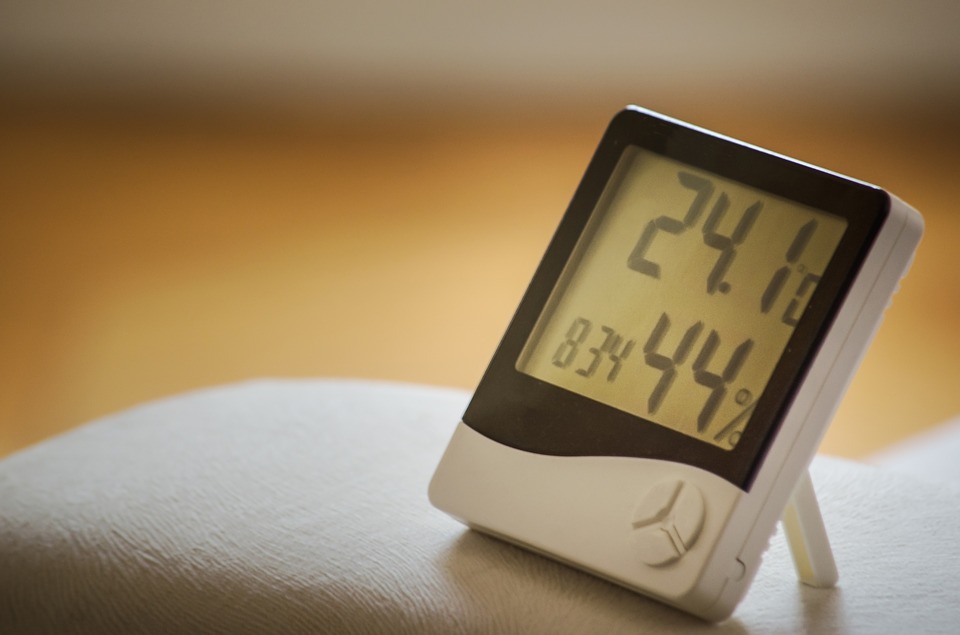3 Ways Temperature Can Significantly Affect Your Sleep –
Temperature can make a big difference in your sleep. It can let you snooze for longer hours at night, or it can make you stay up all night.
The ideal temperature for optimal sleep is 60 to 67 degrees Fahrenheit. While you are lying in bed and trying to sleep, your body temperature decreases and adjusts to the room’s temperature. If your room is cool, it is easier for you to fall asleep at night. On the other hand, if it is warm, it can lead to restlessness which affects the quality of your sleep.
This article discusses the role of temperature in your sleep.
1. Temperature Initiates Sleep
The temperature around you can be a boon or bane to your sleep.
Your body’s temperature follows a natural pattern of lows and highs in a 24-hour period. It reaches its peak temperature in the late afternoon while its minimum is in the morning at around 5 AM.
The body works to self-regulate when the external temperature of the room is not optimal. When the external temperature is not ideal, the body switches back and forth between shivering as a warming mechanism and sweating as a cooling mechanism.
In other words, if the room is too hot, the body produces sweat. Because of sweat, you can end up feeling sticky, uncomfortable, and demotivated to sleep. Also, when the body switches back and forth, it disturbs the healthy sleep cycle, thus preventing you to sleep. On the contrary, if the room is too cold, your body can feel chilly and stiff.
This mechanism makes it difficult to fall or stay asleep.
2. Temperature Affects Your Sleep Quality
Temperature can dramatically affect the quality of your sleep. The sleep cycle is initiated when the temperature of your body drops. When the temperature of your room is too cold or too hot, it can affect the quality of your sleep.
The length of your sleep depends on the balance of the room temperature. Since the body wants the perfect temperature to fall asleep, the brain teases the body to wake up if it is not getting the right temperature. If the temperature around you is balanced, the brain signals the body to fall asleep.
When your body is not trying to regulate itself, you can fall into a deeper and more restorative sleep. An article published by the University of South Australia also showed that sleeping in a cooler environment can help decrease your risks of insomnia. The body needs to drop its core temperature to be able to sleep normally. Those who are suffering from insomnia have a warmer core body temperature, which limits them from getting proper sleep at night. Maintaining a low temperature in the room can help induce sleep.
Temperature helps you sleep faster and better at night. It gives you a more restorative sleep, decreasing your risks of getting insomnia.
3. Temperature Makes You Feel Calmer
Taking a warm shower before you go to bed helps decrease the body’s temperature and release stress, making you feel calmer. The temperature from the warm shower helps normalize your body’s circulation. It makes oxygen flow freely throughout your body and releases muscle tension.
When the body feels tired and calm, it starts to enter a gradual progression stage. This stage keeps you from moving at a pace that makes you feel lazy and sleepy.
The temperature from external factors, such as taking a warm shower before going to bed, helps your body release stress hormones, making you feel calmer and sleepier.
Tips to Keep the Ideal Room Temperature
Having an ideal sleeping room temperature is one of the most effective sleep aids. Having the right temperature helps you sleep faster and improve your sleep. Here are some tips on how you can keep the ideal temperature of your room:
- Turn off the lights and turn on the air conditioner at least an hour before you go to bed. The ideal AC temperature is between 70 to 75 degrees Fahrenheit. If you do not use an air conditioner, encourage airflow by using a fan. Keep your bedroom door open and place the fan in the corner of the room where it can face the bed.
- Take a warm shower before you head to bed.
- Place a bottle of iced water on your nightstand. Taking a few sips can help cool you down.
- If you sleep together with your partner in the same bed and your partner prefers a different temperature, make sure that the temperature does not fall below 65 degrees Fahrenheit.
- Invest in blackout curtains that can block lights. These curtains can also reduce heat by up to 33%.
The temperature around you helps you sleep. If the temperature is balanced, it makes your body feel comfortable and motivated to sleep. It also signals your brain that it is time to end the day. Temperature helps you feel calmer, too.
Turn off the lights and turn on the air conditioner or fan for at least an hour before bedtime. Take a warm shower and place a bottle of ice water on your nightstand to cool you down. Using blackout curtains can also reduce the heat in your room, making you fall asleep faster and better at night.



